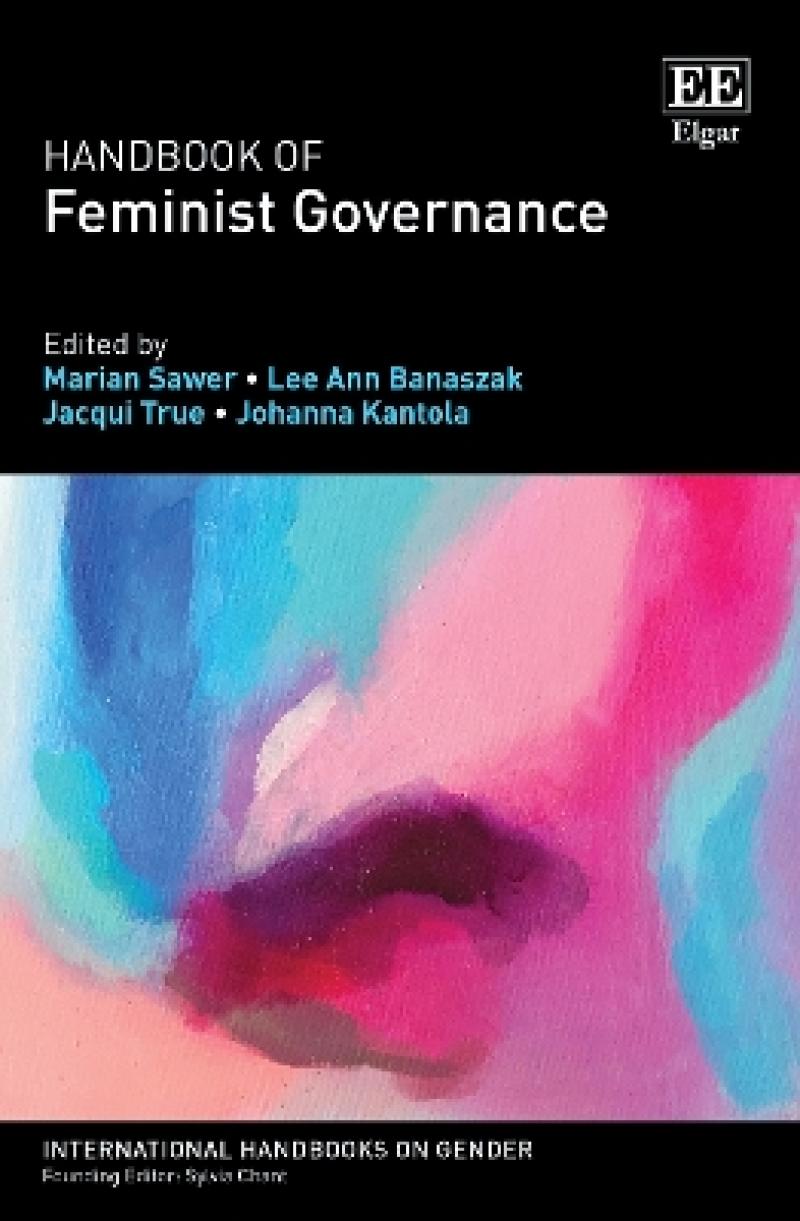<i>‘The </i>Handbook of Feminist Governance<i>, edited by Sawer, Banaszak, True, and Kantola is an impressive initiative [...] the book’s organization supports the stated ambition to be accessible to both researchers and practitioners. This is the kind of book you put in the hands of someone—a student, a street bureaucrat, an employee of an international organization—who wants a quick introduction to some aspect of feminist governance.’</i>
- Lena Wängnerud and Valeriya Mechkova, Politics & Gender,
<i>‘This novel Handbook brings together many of the leading feminist scholars working on governance at the national, regional and international levels. It ranges widely over the central theoretical and methodological approaches including intersectionality and feminist institutionalism, as well as empirically exploring key feminist issues in many major governance institutions.’</i>
- Georgina Waylen, University of Manchester, UK,
<i>‘This </i>Handbook<i> brings together an outstanding group of scholars to explore the origins, varieties, and impact of institutionalizing feminist values and governance into regional, national, and international policy-making bodies. Sawer, Banaszak, True, and Kantola have crafted a comprehensive survey, focused on the period from the 1970s forward, that covers a range of both geographic and issue areas. The volume also offers lessons in best practices in applying a feminist lens to governance and policy, making it a resource for practitioners as well as researchers and educators.’</i>
- Pamela Paxton, University of Texas at Austin, US,
Beginning with an introduction to key theoretical concepts and an international timeline of feminist governance, the Handbook provides a comprehensive overview of feminist organisational principles and practice. Chapters cover a variety of timely issues, from quotas, gender budgeting and gender mainstreaming to institutional design, international norm transmission and the emergence of feminist foreign policy. Regional innovations in feminist governance across the EU, Africa, Asia, the Americas and the Pacific are further examined. The Handbook ultimately reflects and builds upon the body of feminist scholarship that has long been part of the development of feminist governance, as well as highlighting potential avenues for future research.
This wide-ranging Handbook will be an essential reference text for students and scholars of gender studies, politics and international relations. Its analysis of what has been achieved by feminist governance across diverse institutional contexts will also assist the work of feminist activists and gender equality practitioners both inside and outside government.
